

 |
 |
|
Speakers Richard Alley, PhD Scott Barrett, PhD Wallace Broecker, PhD Mark Cane, PhD Eileen Claussen Sir Partha Dasgupta, PhD Raúl Estrada-Oyuela Christopher Field, PhD Michael Hanemann, PhD Geoffrey Heal, PhD David Keith, PhD Klaus S. Lackner, PhD Upmanu Lall, PhD Roberto Lenton, PhD Michael McElroy, PhD John Mutter, PhD Jonathan Patz, MD Robert E. Pollack, PhD Graham Michael Purdy, PhD Atiq Rahman, PhD Cynthia Rosenzweig, PhD Jeffrey D. Sachs, PhD Jorge Sarmiento, PhD Daniel Schrag, PhD Steve Wofsy, PhD Richard Alley, PhD Biography Dr. Richard B. Alley is Evan Pugh Professor of Geosciences and Associate of the EMS Environment Institute at The Pennsylvania State University, University Park, Pennsylvania. There he teaches and conducts research on the paleoclimatic records, dynamics, and sedimentary deposits of large ice sheets, as a means of understanding the climate system and its history, and projecting future changes in climate and sea level. Dr. Alley has spent three field seasons in Antarctica and five in Greenland. He is a Fellow of the American Geophysical Union, and has been awarded a Packard Fellowship, a Presidential Young Investigator Award, the Horton Award of the American Geophysical Union Hydrology Section, the Easterbrook Award of the Quaternary Geology and Geomorphology section of Geological Society of America, the Wilson Teaching Award of the College of Earth and Mineral Sciences and the Faculty Scholar Medal of The Pennsylvania State University. His book on abrupt climate change, The Two-Mile Time Machine, was the national Phi Beta Kappa Science Award winner for 2001. Dr. Alley chaired a recent National Research Council study on Abrupt Climate Change, and serves, or has served, on many other advisory panels and steering committees. He was invited to breakfast with a sitting U.S. Vice President to discuss climate change, and was invited to testify to a Senate committee. He has authored or coauthored more than 135 refereed publications, and is a "highly cited" researcher as indexed by ISI. Dr. Alley is happily married with two children, a ranch house, a cat, a minivan, and two bicycles, and resides in State College, Pennsylvania, where he coaches recreational soccer and occasionally plays some. He received his PhD in geology, with a minor in materials science, from the University of Wisconsin-Madison in 1987, and earned an MSc degree (1983) and BSc degree (1980) in geology from the Ohio State University in Columbus, Ohio. View Full Speaker List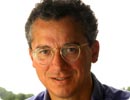 Scott Barrett, PhD Biography Scott Barrett is a professor at the School of Advanced International Studies, Johns Hopkins University. He has written extensively on international cooperation, and is the author of Environment and Statecraft: the Strategy of Environmental Treaty-Making (Oxford University Press, 2003). He has also written specifically on the design of a global climate change treaty, and has been a lead author of the Intergovernmental Panel on Climate Change. In addition to doing research in this area, he has advised a number of international organizations on climate change policy and other international issues. He is currently an adviser to the International Task Force on Global Public Goods. His research was awarded the Erik Kempe Prize and the Resources for the Future Dissertation Prize. He taught previously at the London Business School, was a research director at University College London, and received his PhD in economics from the London School of Economics. View Full Speaker List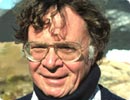 Wallace Broecker, PhD View Abstract Biography Professor Broecker has spent his entire 52-year career at Columbia. He is a geochemist who, while specializing in radioisotope dating, has developed broad interests in the fields of oceanography and paleoclimate. In 1985 he suggested that the conveyor-like circulation in Atlantic Ocean constituted the climate system's Achilles' heel. Since then, the subject of abrupt climate change has become one of the hottest areas in the earth sciences. Broecker is the author of eight textbooks and over 400 journal articles. Among his many honors are Japan's Blue Planet Award and the National Science Medal. He is a member of the National Academy of Sciences. Abstract "An Insurance Policy Against a Damaging Global Warming"It is likely that fossil fuels will long remain our dominant energy source. If, as have China and India, much of the developing world industrializes, then unless some countermeasures are put in place, we are on a path to tripled CO2. As our climate system has amply demonstrated its high sensitivity to small nudges, we must create the wherewithal to shutdown CO2 emissions before we give it too large a poke. As of now only one sure method is on the table, namely CO2 capture and storage. Development of the required technology, creation of a payment scheme, and putting in place the complex set of necessary political agreements will require at least two decades to accomplish. Implementation will require at least four additional decades. Hence we must pull out all the stops and develop this option. View Full Speaker List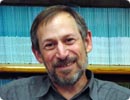 Mark Cane, PhD View Abstract Biography Mark Cane is the G. Unger Vetlesen Professor of Earth and Climate Sciences at Columbia University. He received his BA from Harvard in 1965; his MA in 1966; and his PhD from the Massachusetts Institute of Technology in 1976. With Lamont colleague Dr. Stephen Zebiak, he devised the first numerical model able to simulate El Niño. In 1985 this model was used to make the first physically-based forecasts of El Niño. Over the years the Zebiak-Cane model has been the primary tool used by many investigators to enhance understanding of El Niño/Southern Oscillation (ENSO). Abstract "Climate Variation and Climate Change"
The dictionary defines change as alteration, variation or modification, or the result of this. Yet scientists often use climate variation for natural changes and reserve climate change for what is coming due to human activity—except when they talk of abrupt change in the glacial world. A definition of climate is implicit in the saying "climate is what you expect, weather is what you get." With this anthropocentric definition, climate change is a change in our expectations. Our expectations are based on the experience of no more than a few generations; few alive today expect another Dust Bowl.  Eileen Claussen View Abstract Biography Eileen Claussen is the President of the Pew Center on Global Climate Change and Strategies for the Global Environment. Ms. Claussen is the former Assistant Secretary of State for Oceans and International Environmental and Scientific Affairs. Abstract "Climate Variation and Climate Change"
Environmental necessity, efficiency improvements, reduced costs and security issues will all contribute to a movement away from fossil fuels and toward a new energy future for the United States. But without careful planning the transition to a low carbon future could turn into an arduous and expensive process. Eileen Claussen will offer a perspective on what is needed to successfully transition to a low-carbon future. 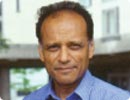 Sir Partha Dasgupta, PhD View Abstract Biography Partha Dasgupta, who was born in Dhaka (then in India) and educated in Varanasi, Delhi, and Cambridge, is the Frank Ramsey Professor of Economics and past Chairman of the Faculty of Economics and Politics (1997–2002) at the University of Cambridge, and Fellow of St. John's College. During 1991 he was Chairman of the Beijer International Institute of Ecological Economics of the Royal Swedish Academy of Sciences in Stockholm, and during 1989–92 also Professor of Economics, Professor of Philosophy, and Director of the Program in Ethics in Society at Stanford University. His research interests have covered welfare and development economics, the economics of technological change, population, environmental and resource economics, the theory of games, and the economics of undernutrition. His publications include "Guidelines for Project Evaluation" (with S.A. Marglin and A.K. Sen; United Nations, 1972), "Economic Theory and Exhaustible Resources" (with G.M. Heal; Cambridge University Press, 1979); "The Control of Resources" (Harvard University Press, 1982); "An Inquiry into Well-Being and Destitution" (Clarendon Press, Oxford, 1993); and "Human Well-Being and the Natural Environment" (Oxford University Press, 2001). Professor Dasgupta is a Fellow of the Econometric Society, Fellow of the British Academy, Foreign Honorary Member of the American Academy of Arts and Sciences, Foreign Member of the Royal Swedish Academy of Sciences, Honorary Fellow of the London School of Economics, Honorary Member of the American Economic Association, Member of the Pontifical Academy of Social Sciences, Foreign Associate of the U.S. National Academy of Sciences, and Fellow of the Third World Academy of Sciences. He is a past President of the Royal Economic Society (1998–2001) and the European Economic Association (1999). Professor Dasgupta was named Knight Batchelor by Her Majesty Queen Elizabeth II in her Birthday Honours List in 2002 for "services to economics" and was co-winner (with Karl-Goran Maler of the Beijer International Institute of Ecological Economics, Stockholm) of the 2002 Volvo Environment Prize. Abstract "Discounting Future Gains and Losses"Earth scientists working on the anthropogenic causes of global climate change face a puzzle. Many among them fear that the economic prospects of our great-grandchildren in various parts of the globe could be seriously diminished unless the causal emissions are reduced now. Influential economists have, however, shown quantitatively that not much ought to be done today to curtail emissions, because, to do so would involve costs that far outweigh the time-discounted value of the benefits our great-grandchildren would enjoy in consequence. In those studies the discount rates are positive. I show that the use of positive rates is justified only if it is reasonable to assume that global well-being will increase over time even if little is done to curtail current emissions. I also show that negative discount rates ought to be used if there is serious risk that large groups of people in the future will be less well off than us unless emissions are curtailed now. Whereas positive discount rates attenuate future gains and losses, negative rates amplify them. It is not economics per se that is at war with the earth sciences. The problem lies elsewhere. It lies in the fact that the assumptions economists frequently make about future economic prospects are not informed by the concerns of earth scientists. View Full Speaker List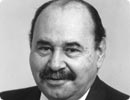 Raúl Estrada-Oyuela View Abstract Biography
Ambassador Raúl Estrada-Oyuela is a career diplomat who has been posted in Washington D.C., Vienna, Brasilia, and Santiago, and was the Argentine Ambassador to the People's Republic of China until December 1997. Mr. Estrada-Oyuela was a member of the National Commission on Global Change of the Argentine Republic, and has served in Buenos Aires, inter alia, as Deputy Director for South American Affairs, Deputy Director General for International Organizations, Director General of the Special Unit on Environment in the Foreign Ministry, Director General for Cultural Affairs, and currently serves as Ambassador at large for Environmental Negotiations. Abstract "No, we can't stop it, however . . ."
We can't stop climate change. Climate has changed before naturally but we are now concerned because present conditions indicate a change generated by human production and consumption activities. Some of the effects of the change seem to be already present in recent extreme weather events. Projections indicate that pace of an incoming change will be faster than previous changes. Consequently, adaptation of ecosystems will be traumatic and social and political systems will suffer the impact. 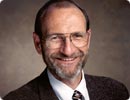 Chris Field, PhD Biography Chris Field (AB Harvard, PhD Stanford) is the founding director of the Carnegie Institution's Department of Global Ecology and Professor by Courtesy at Stanford University. Trained in physiological ecology, Dr. Field initially studied mechanisms that integrate parts of a plant, including the relationship between nitrogen and photosynthesis. Later, he and his students sought ways to quantify ecosystem processes from satellite data, leading to global-scale studies of primary production, forest management, agriculture, and fire. At the ecosystem scale, Dr. Field has, for more than a decade, led major experiments on grassland responses to global change. A member of the U.S. National Academy of Sciences, Dr. Field has served on many boards and committees working to set the agenda for global ecological research. For much of the last decade, Dr. Field has focused on creating Global Ecology, founded in 2002 as the Carnegie Institution's first new research department in more than eighty years. View Full Speaker List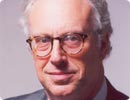 Michael Hanemann, PhD Biography
W. Michael Hanemann is a professor in the Department of Agricultural Resource Economics and Policy at the University of California, Berkeley. His research interests include commercial energy consumption; energy consumption in agriculture; energy consumption in industry; energy demand, conservation, and investment; energy microeconomics; environmental economics and policy; renewable resources; residential energy consumption; and water-resource economics. Professor Hanemann is an eminent academic, has worked on legal cases involving natural-resource damage assessment, and has spoken on natural-resource damage assessment at many conferences. His relevant publications include A Preliminary Economic Analysis of Recreational Fishing Losses Related to the Exxon Valdez Oil Spill (with Richard T. Carson, 1992); An Economic Assessment of Marine Recreational Fishing in Southern California (with Thomas C. Wegge et al, 1986); and "Valuation and Management of Tropical Forests: A Theoretical and Empirical Analysis" (with Heidi J. Albers et al, 1996).
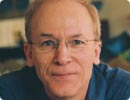 Geoffrey Heal, PhD Biography
Geoffrey Heal is Garrett Professor of Public Policy and Corporate Responsibility at Columbia University's Graduate School of Business. He has taught at Cambridge, Stanford, Yale, and Princeton, and held a Fulbright Professorship at the University of Siena. 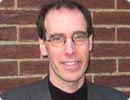 David Keith, PhD View Abstract Biography Professor Keith works near the interface between climate science, energy technology, and public policy. Much of his policy work is focused on the capture and storage of CO2 including services as lead author and chair of a crosscutting group for the IPCC report on CO2 storage, and as member of a NRC/NAS committee; overview articles in Science, Nature, and Scientific American; invited presentations for the U.S. National Academies, industry, academia and major environmental organizations; and, interviews on National Public Radio, CNN, CBC TV and radio, and various print media. Abstract "Technology and Climate Change"Technology serves as both villain and savior in the climate problem. Fossil fuel technologies serve a primary driver of modern industrial civilization and of human-induced climatic change. Many technologies exist that could enable us to drastically reduce our impact on the earths climate while continuing to provide more energy services. Yet implementation of any new large-scale energy technology will have far reaching and uncertain consequences for environment and society. I will focus on one set of technologies, the use of fossil fuels without CO2 emissions, as springboard for speculating about the role of technology in managing the climate. View Full Speaker List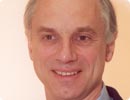 Klaus S. Lackner, PhD Biography Klaus S. Lackner joined Columbia University's Earth Institute in 2001 as Ewing-Worzel Professor of Geophysics in the Department of Earth and Environmental Engineering. He received his PhD in 1978 in theoretical physics from the University of Heidelberg, Germany. After postdoctoral positions at the California Institute of Technology and the Stanford Linear Accelerator Center he joined the Theoretical Division at Los Alamos National Laboratory in 1983. While mostly working in research, he also held positions in the Laboratory's senior management, among them as Acting Associate Laboratory Director for Strategic and Supporting Research representing one-third of the Laboratory. Lackner has been a founder of the Zero Emission Coal Alliance, an industry-led effort to develop coal power with zero emissions to the atmosphere. His recent work is on environmentally acceptable technologies for the use of fossil fuels. View Full Speaker List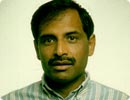 Upmanu Lall, PhD Biography Upmanu Lall is Professor and Chair of the Department of Earth and Environmental Engineering at Columbia University. His principal areas of expertise are statistical and numerical modeling of hydrologic and climatic systems and water resource systems planning and management. He has over 25 years of experience as a hydrologist. He has been the principal investigator on a number of research projects funded by the USGS, the NSF, the USAF, NOAA, USBR, DOE and State of Utah and Florida agencies. These projects have covered water quantity and quality and energy resource management, flood analysis, groundwater modeling and subsurface characterization, climate modeling, and the development of statistical and mathematical modeling methods. He has been involved as a consultant with specialization in groundwater flow and contaminant transport modeling covering mining operations, streamflow modeling and water balance, risk and environmental impact assessment, site hydrologic evaluation, and as a reviewer and expert on a number of other hydrologic problems. He has also taught over 20 distinct University courses. View Full Speaker List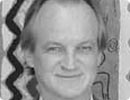 Roberto Lenton, PhD Biography
Roberto Lenton is Chair of the Technical Committee of the Global Water Partnership (GWP), hosted by Columbia's Earth Institute, and concurrently Co-chair of the United Nations' Millennium Project Task Force on Water and Sanitation and Senior Advisor for International Development at the International Research Institute for Climate Prediction (IRI).
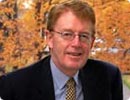 Michael McElroy, PhD View Abstract Biography
Michael B. McElroy obtained his PhD in Applied Mathematics from Queens University Belfast. Following post-doctoral work at the University of Wisconsin, he served as a staff scientist at the Kitt Peak National Observatory before joining the faculty of Harvard University. There he was founding Chair of the Department of Earth and Planetary Sciences and the first Director of the interdisciplinary Center for the Environment.
Abstract "Earth's Changing Climate: Past, Present, and Future "The paper will discuss the range of human-related activities that can lead to significant changes in climate. It will examine the suggestion that the human influence is not simply confined to the recent industrial period but that it may have been important as early as 10,000 years ago, triggered by the early development of agriculture. Particular attention will be directed at the importance of the ocean in regulating the climate system, with specific discussion of the North Atlantic and the tropical Pacific. Factors responsible for the Medieval Optimum and the Little Ice Age will be explored setting the context for discussion of the changes in climate that have developed over the past several centuries. Activities implicated in contemporary climate change—changes in greenhouse gases and aerosols—will be discussed with an indication of their potential significance for the future. The paper will include a discussion of policy options that could mitigate damage from future climate change emphasizing that uncertainties in our ability to predict the future should not be taken as justification for inaction. View Full Speaker List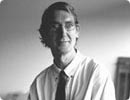 John Mutter, PhD Biography
John Mutter is the Deputy Director of the Earth Institute at Columbia and professor in the Department of Earth and Environmental Sciences. His research has focused primarily on global tectonics using geophysical techniques. More recently he has been applying understanding of these systems to science-based sustainable development initiatives. He has conducted more than thirty research cruises around the world, including the Arctic and Antarctic, and he has authored or coauthored more than seventy articles in scientific journals and popular publications.
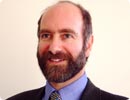 Jonathan Patz, MD View Abstract Biography
Jonathan Patz, MD, MPH, is Director of the Program on Health Effects of Global Environmental Change, and Assistant Professor in the Department of Environmental Health Sciences at the Johns Hopkins Bloomberg School of Public Health. In 1998, he was appointed Co-chair for the U.S. National Assessment on Climate Variability and Change health sector expert panel, and in 2002, Convening Lead Author for the United Nations/World Bank Millennium Ecosystem Assessment. Since 1994, he has been lead author on four United Nations assessment reports, including the Second and Third Assessment reports of the Intergovernmental Panel on Climate Change (IPCC), and WHO monograph on climate change. He is coeditor for the upcoming journal, Ecohealth: Conservation Medicine and Ecosystem Sustainability, and coeditor of the textbook, Ecosystem Change and Public Health: A Global Perspective (2001); he directs courses on this subject at Johns Hopkins. From 1996–2000, he was principal investigator for the largest U.S. multi-institutional study on climate change health risks and has briefed the U.S. Congress, Administration, and federal agency leaders. His areas of research investigation include effects of climate change on heat waves, air pollution and water and vectorborne diseases, as well as the link between deforestation and resurgent diseases in the Amazon (with over 75 publications on these topics).
Abstract "Climate Variability, Climate Change and Disease"
Many health outcomes and diseases are sensitive to climate, including heat-related mortality or morbidity; air pollution-related illnesses; infectious diseases, particularly those indirected transmitted via water (waterborne) and by insect or rodent vectors (vectorborne); and refugee health type issues linked to forced population migration. The following conditions can make a region or population more vulnerable to these health impacts of climate change:
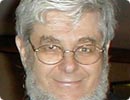 Robert E. Pollack, PhD Biography
Robert Pollack is Professor of Biological Sciences, Adjunct Professor of Religion, Lecturer in Psychiatry at the Center for Psychoanalytic Training and Research, and Director of the Earth Institute's Center for the Study of Science and Religion, all at Columbia University; and Adjunct Professor of Science and Religion at Union Theological Seminary. He is the author of more than a hundred research papers on the oncogenic phenotype of mammalian cells in culture, and has edited many books and reviews on aspects of molecular biology.
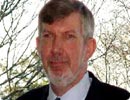 Graham Michael Purdy, PhD Biography
Mike Purdy received his PhD degree from the University of Cambridge in the U.K. in Marine Geophysics in 1974 and joined Woods Hole Oceanographic Institution (WHOI) in Massachusetts as a Post Doctoral Scholar. Over the next 20 years he built a successful research group specializing in observational ocean bottom seismology, studying the structure and dynamics of the earth's crust beneath the ocean. He has spent, in total, more than three years at sea, carrying out experiments using ocean bottom seismic instrumentation designed and constructed within his group. In 1991 he became Chairman of the Department of Geology and Geophysics (G&G) at WHOI, one of the world's leading Marine G&G Departments, and spent four years gaining experience in both national and international marine science planning and administration. He is author or coauthor of more than 60 research articles in peer reviewed journals, more than 20 other reports and articles, and more than 100 published conference abstracts.
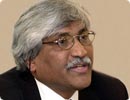 Atiq Rahman, PhD Biography Dr. A. Atiq Rahman is the executive director of the Bangladesh Centre for Advanced Studies (BCAS) and the visiting professor of international diplomacy and sustainable development at the Fletcher School of Law and Diplomacy, Tufts University, Boston. He holds a PhD in solid-state chemistry and taught at the universities of Oxford and Aberdeen in the UK for over ten years. Presently he is engaged in global-local linkages and mega-processes such as global equity and poverty issues, climate change, biodiversity, institutions and capacity building, and global scenarios.
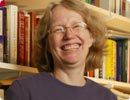 Cynthia Rosenzweig, PhD View Abstract Biography Dr. Cynthia Rosenzweig is a Research Scientist at the Goddard Institute for Space Studies, where she is the leader of the Climate Impacts Group. She is an Adjunct Senior Research Scientist at the Columbia University Earth Institute and an Adjunct Professor of Environmental Sciences at Barnard College. A recipient of a 2001 Guggenheim Fellowship, Dr. Rosenzweig focuses her research on the impacts of climate variability and change on systems and sectors at regional, national, and global scales. She was the co-leader of the Metropolitan East Coast Regional Assessment of the Potential Consequences of Climate Variability and Change, the first major study of how global climate change will affect a major urban area. She has organized and led numerous interdisciplinary national and international studies and published over a hundred scientific articles and reports. Abstract "Climate Change and a Global City: Potential Consequences in the New York Metropolitan Region"Large cities are at the forefront of both vulnerability and adaptation to climate impacts. These cities are commonly located on coastlines and are home to a rapidly growing percentage of the earth's people. The need for understanding climate impacts in urban areas is becoming acute, as urban dwellers and decision makers are challenged to devise new types of adaptations and adjustments. For a global city such as the New York Metropolitan Region, climate variability and change present complex challenges and opportunities. View Full Speaker List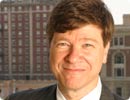 Jeffrey D. Sachs, PhD Biography Jeffrey D. Sachs is the Director of the Earth Institute, Quetelet Professor of Sustainable Development, and Professor of Health Policy and Management at Columbia University. He is also Special Advisor to United Nations Secretary General Kofi Annan on a group of poverty alleviation initiatives called the Millennium Development Goals. Prior to joining Columbia, Sachs spent over twenty years at Harvard University, most recently as Director of the Center for International Development. Sachs became internationally known in the 1980s for his work advising governments in Latin America, Eastern Europe, the former Soviet Union, Asia and Africa on economic reforms. He is author or coauthor of more than two hundred scholarly articles, and has written or edited many books. Sachs was recently elected into the Institute of Medicine and is a Research Associate of the National Bureau of Economic Research. A native of Detroit, Michigan, Sachs received his BA, MA, and PhD degrees at Harvard University. View Full Speaker List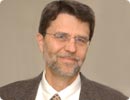 Jorge Sarmiento, PhD Biography Jorge L. Sarmiento is a Professor of Geosciences at Princeton University. He obtained his PhD at the Lamont-Doherty Geological Observatory of Columbia University in 1978, and then conducted postdoctoral work at the Geophysical Fluid Dynamics Laboratory/NOAA in Princeton before joining the Princeton University faculty in 1980. He has published widely on the oceanic cycles of climatically important chemicals such as carbon dioxide, on the use of chemical tracers to study ocean circulation, and on the impact of climate change on ocean biogeochemistry. He has participated in the scientific planning and execution of most of the large-scale multi-institutional and international oceanographic biogeochemical and tracer programs of the last two decades. He was Director of Princeton's Atmospheric and Oceanic Sciences Program from 1980 to 1990, and is presently Director of the newly formed Cooperative Institute for Climate Science. He has served on the editorial board of multiple journals and as editor of Global Biogeochemical Cycles. View Full Speaker List Daniel Schrag, PhD Biography
Daniel Schrag is Professor of Earth and Planetary Sciences at Harvard University. There he studies climate and climate change over the broadest range of Earth history. He has examined changes in ocean circulation over the last several decades, with particular attention to El Niño and the tropical Pacific. He has worked on theories for Pleistocene Ice Age cycles including a better determination of ocean temperatures during the Last Glacial Maximum, 20,000 years ago. Schrag has also developed the Snowball Earth hypothesis, proposing that a series of global glaciations occurred between 750 and 580 million years ago that may have led to the evolution of multicellular animals. Schrag is currently working on creating integrated models of climate change and economic stability for developing countries.
Abstract
Biography Steven Wofsy was born in New York City in 1946 and is currently Abbott Lawrence Rotch Professor of Atmospheric and Environmental Chemistry at Harvard University, Division of Engineering and Applied Science and Department of Earth and Planetary Sciences. He studied chemical physics at University of Chicago (BS, 1966) and Harvard (PhD 1971), shifting to atmospheric chemistry in 1971. His work has focused on changes in the composition of the stratosphere and troposphere, at first in theory and modeling and later in field and laboratory studies. His current research emphasizes the effects of terrestrial ecosystems on the global carbon cycle, and the impacts of climate change and land use on ecosystems and atmospheric composition. Several projects focus on quantitative measurements of ecosystem carbon fluxes, for time scales spanning instantaneous to decadal and spatial scales from meters to thousands of kilometers, combining physical, chemical and biological methods. His awards include AGU's McIlwane prize and NASA's Distinguished Public Service Medal. Abstract "Global Forests and Climate"Forested land surfaces exert strong influences on the physical climate by modifying the exchange of radiant, sensible, and latent heat between the environment and the surface. Changes in climate can fundamentally alter forests, eliminating trees or causing them to grow where formerly they could not. Forests also provide great economic and environmental services. This talk introduces the complex feedbacks between climate and forests, using illustrations from boreal, temperate, and tropical regions, showing that the key climate characteristics for forests may differ from conventional metrics. We will also examine feedbacks between forests and greenhouse gases related to changes in carbon sequestration in relation to climate shifts and economic exploitation. View Full Speaker List |
|